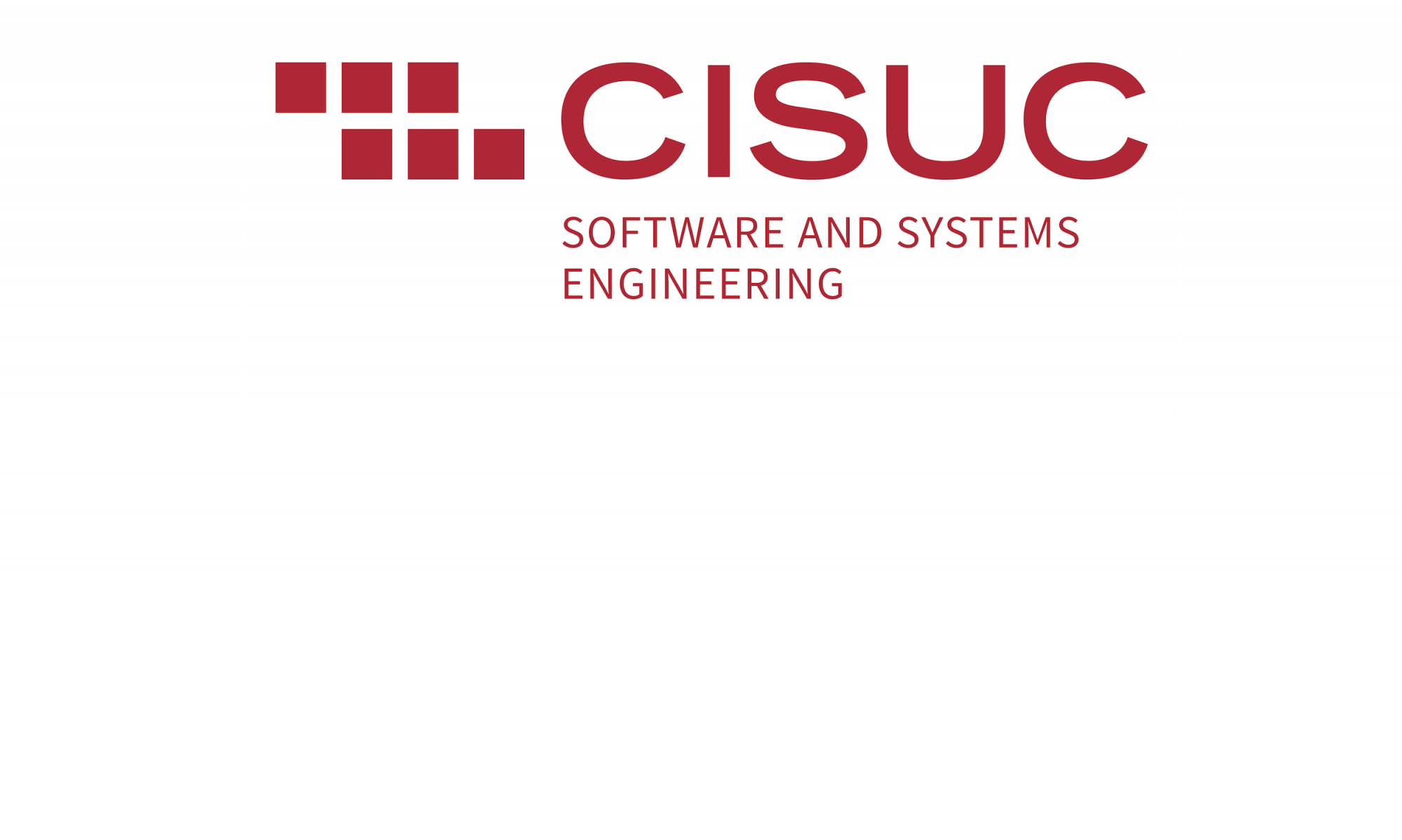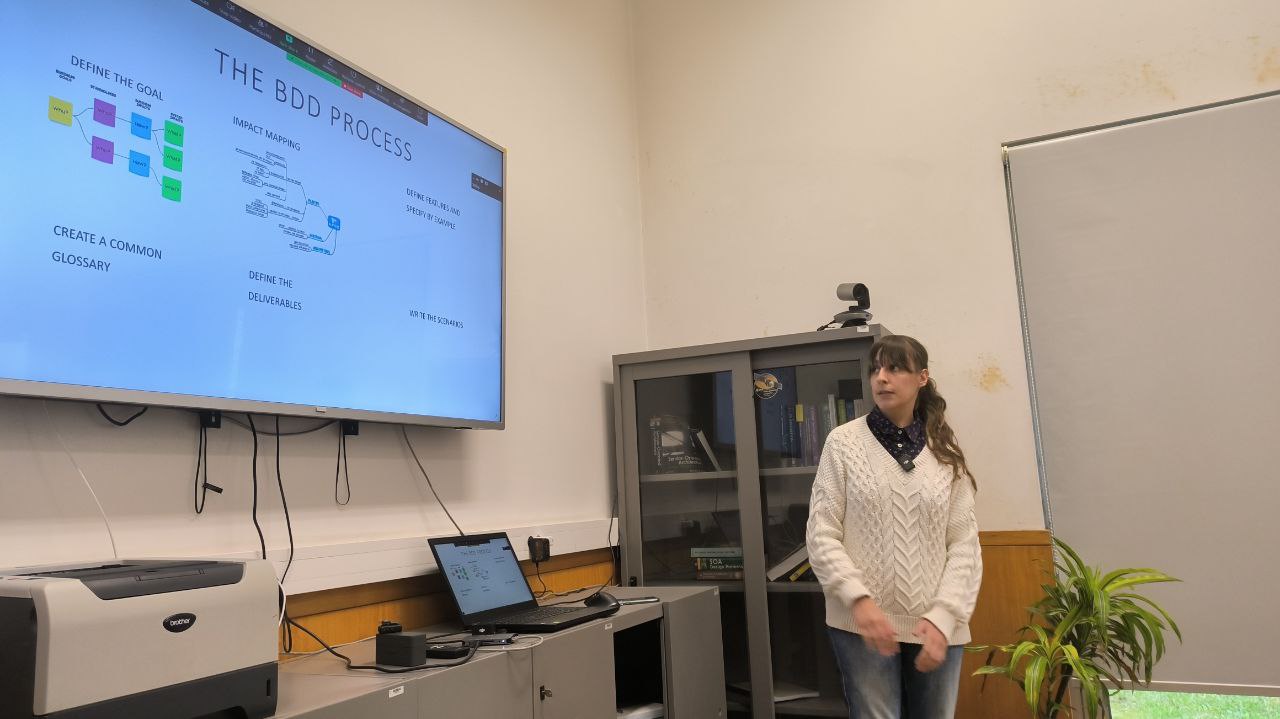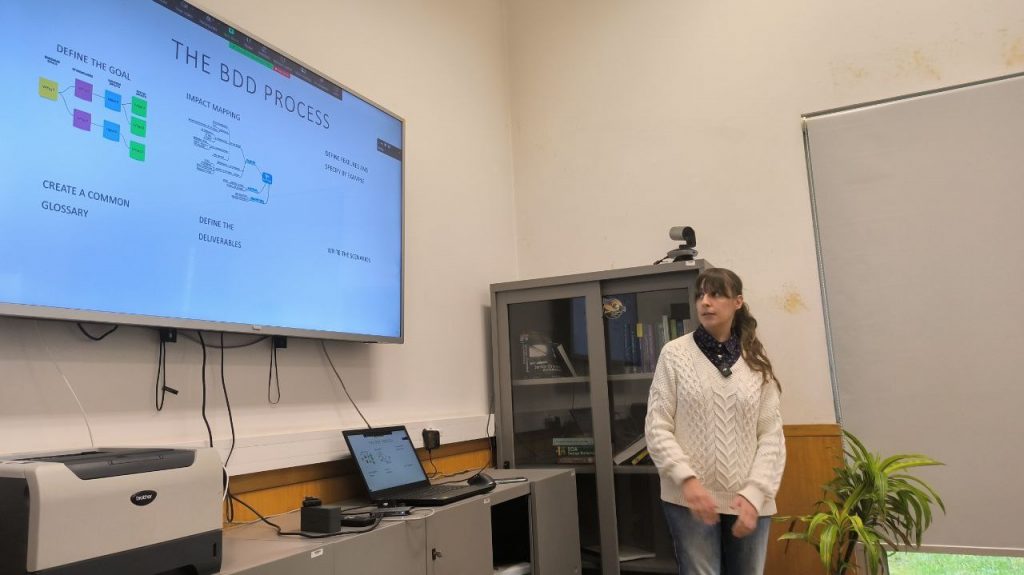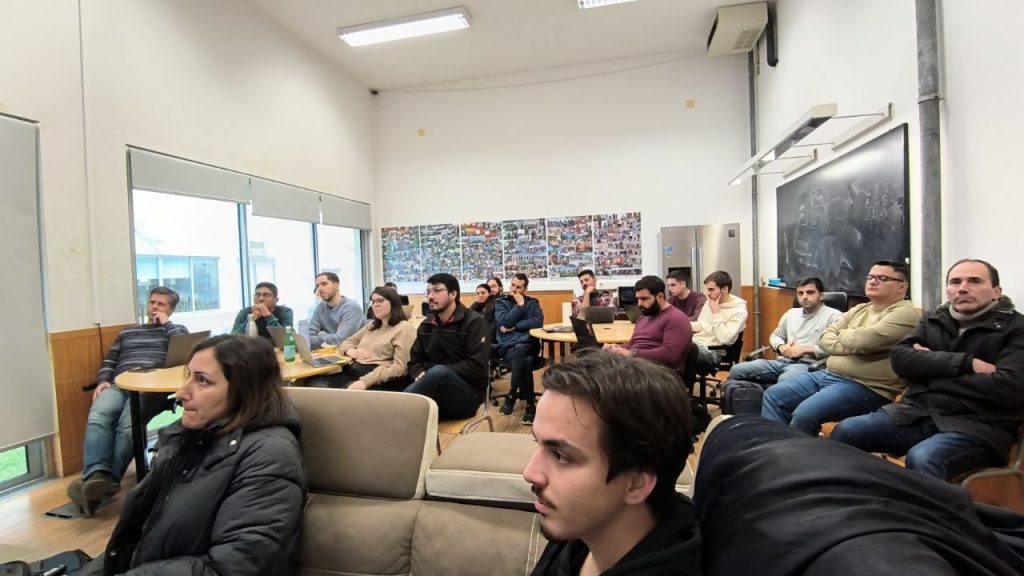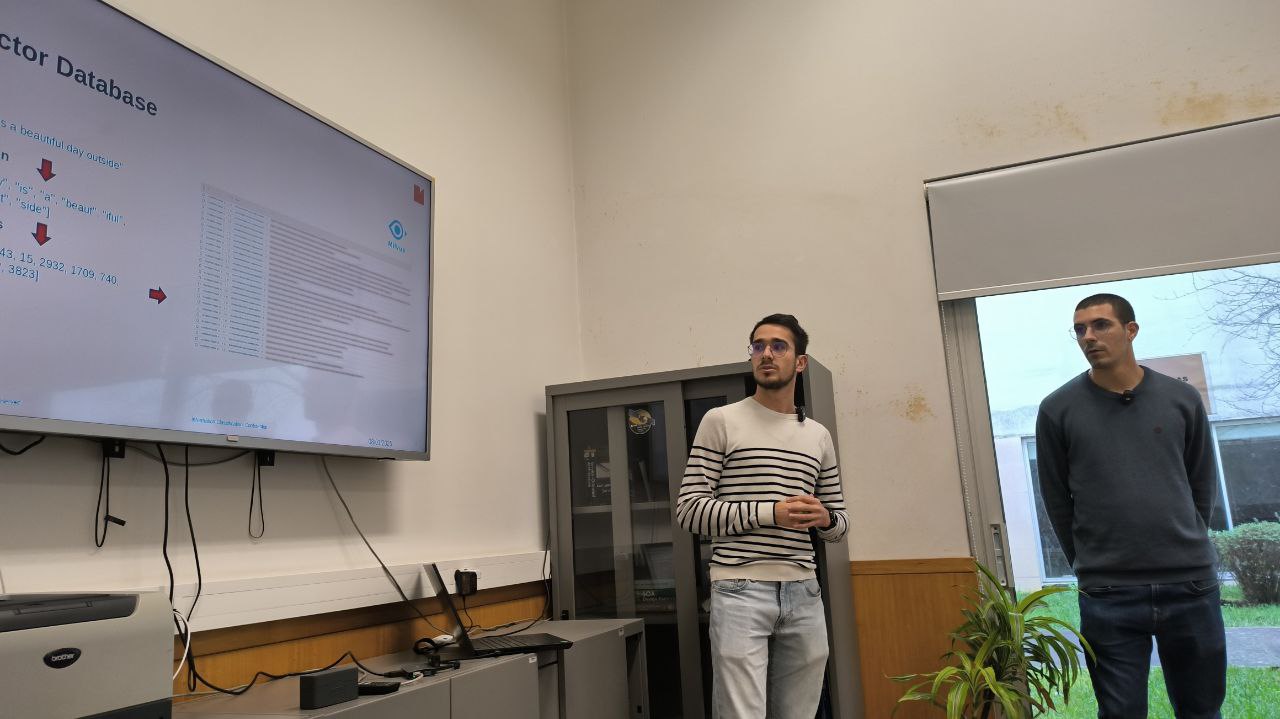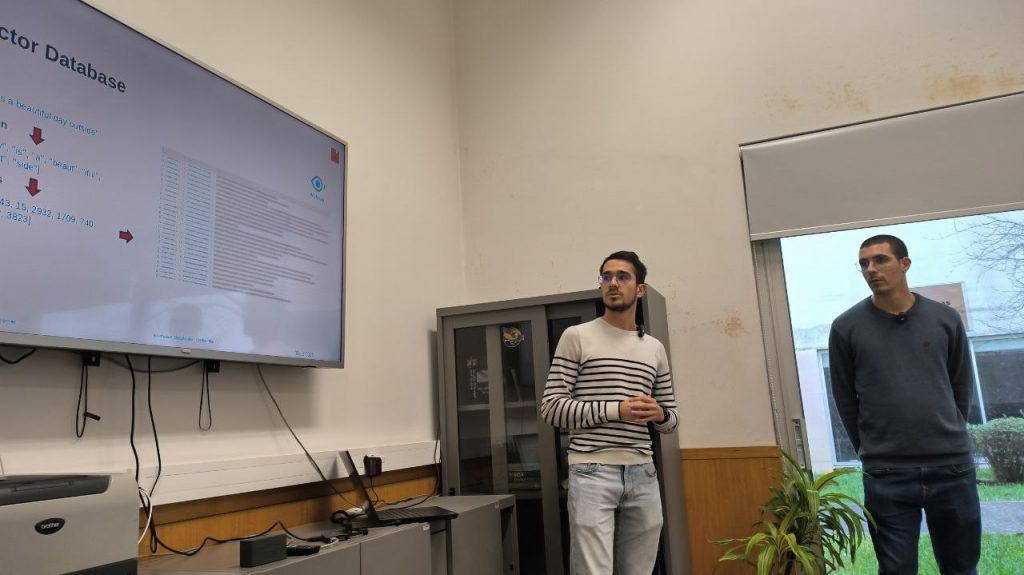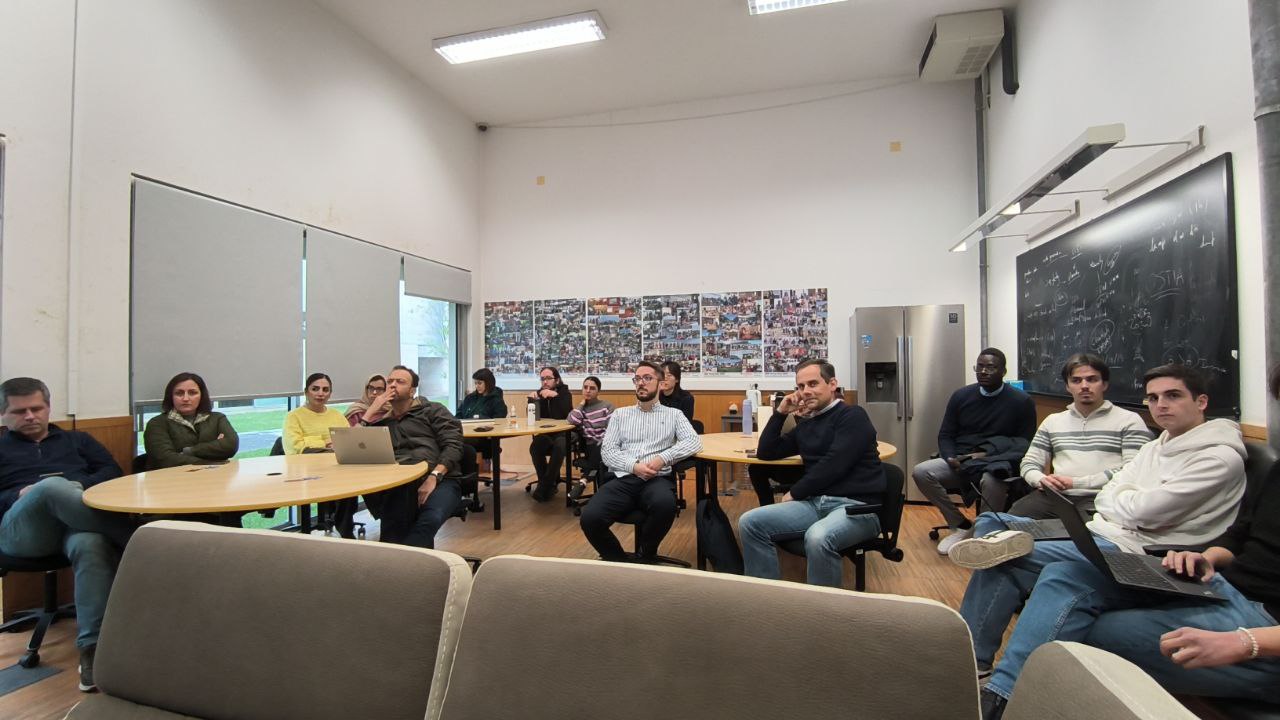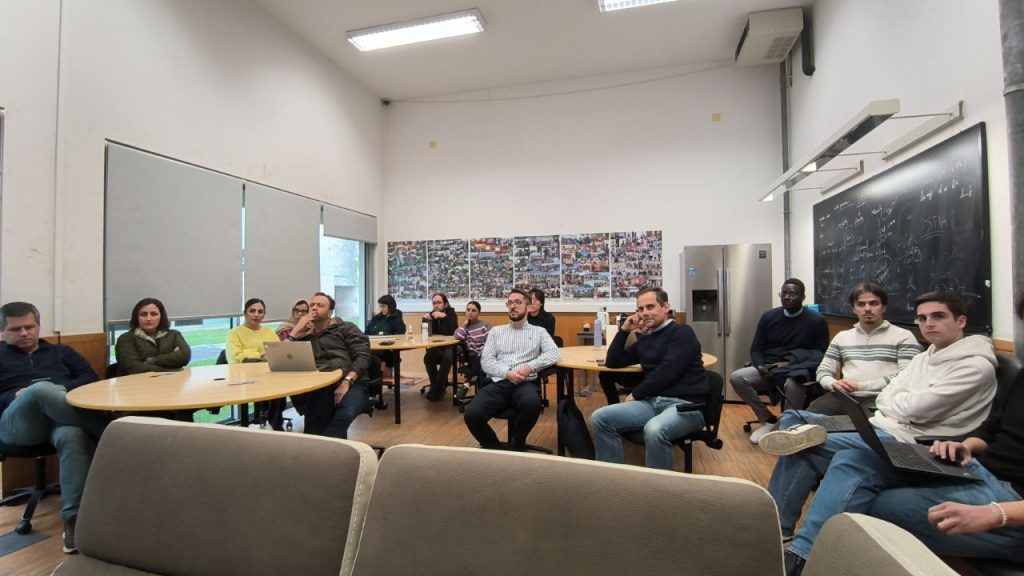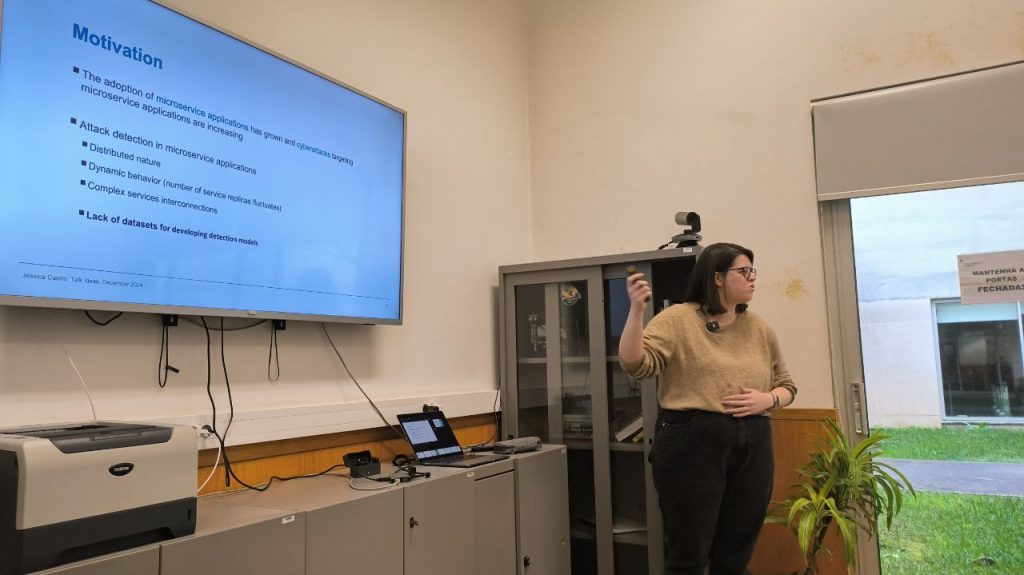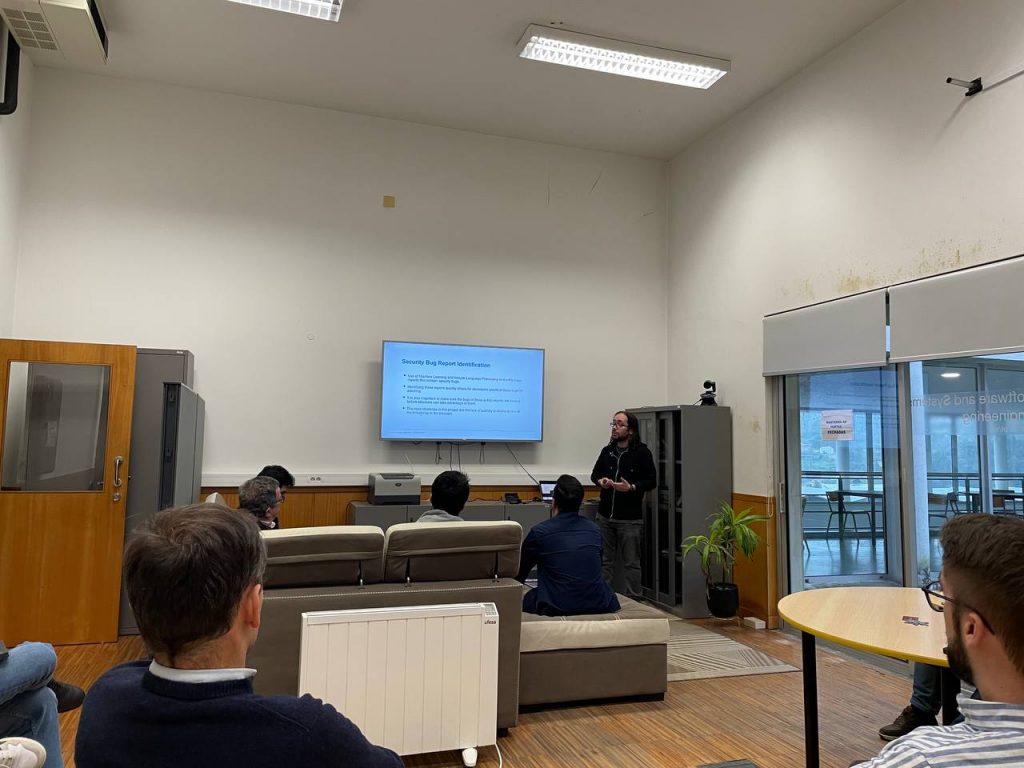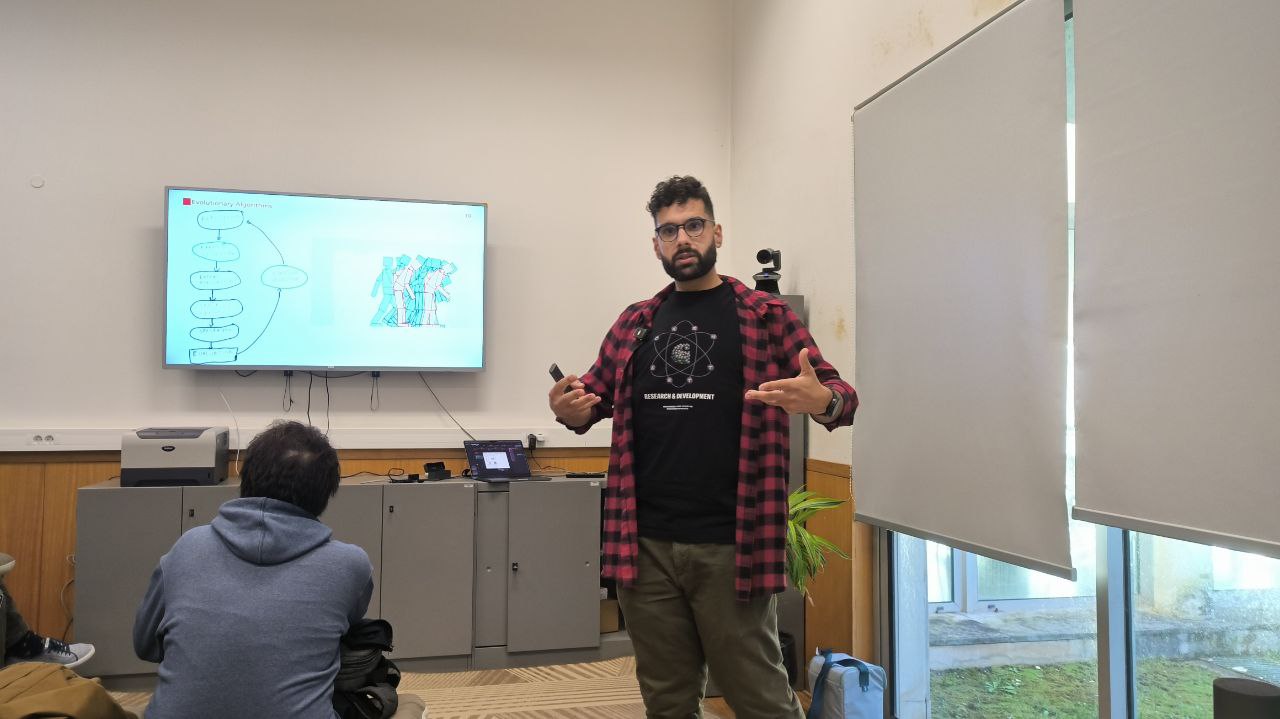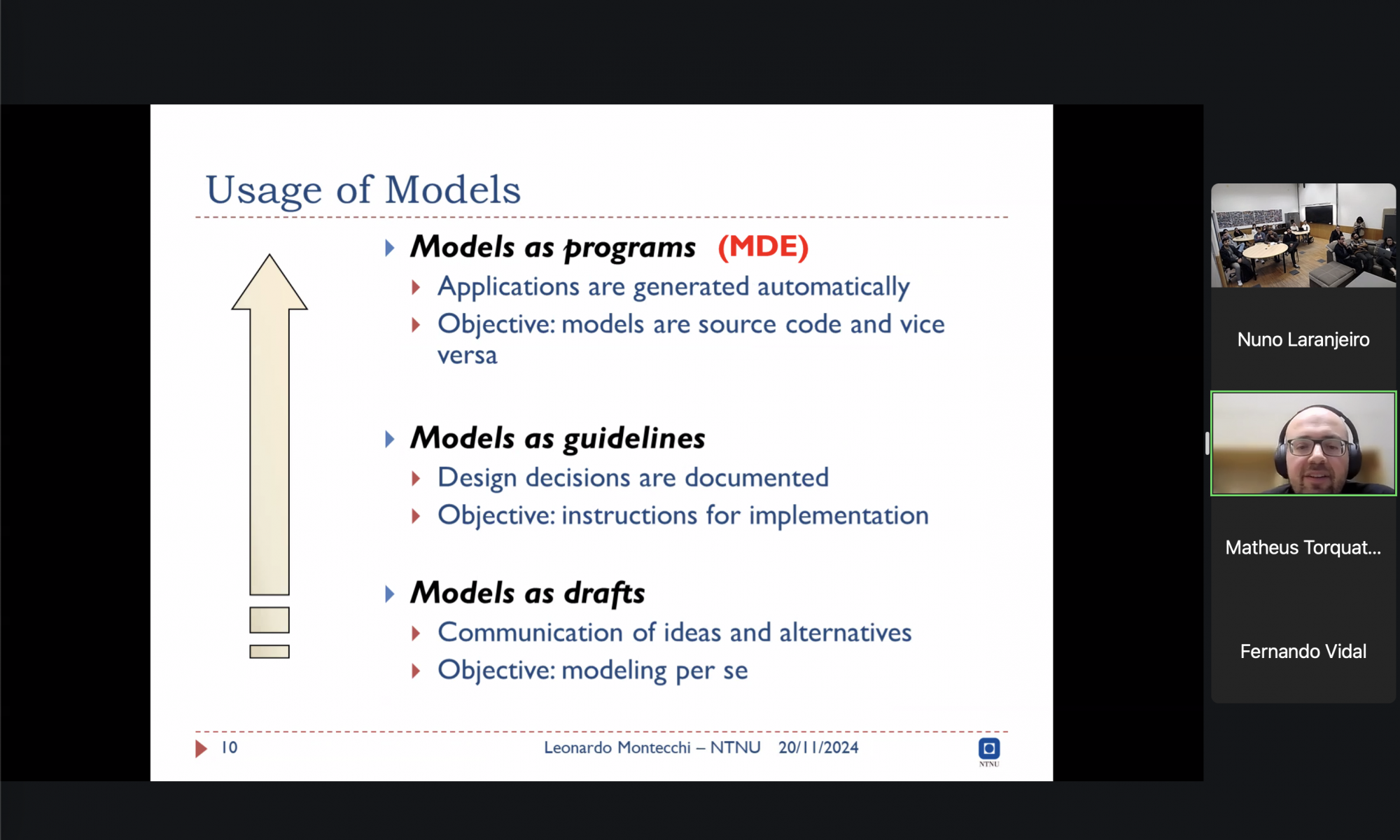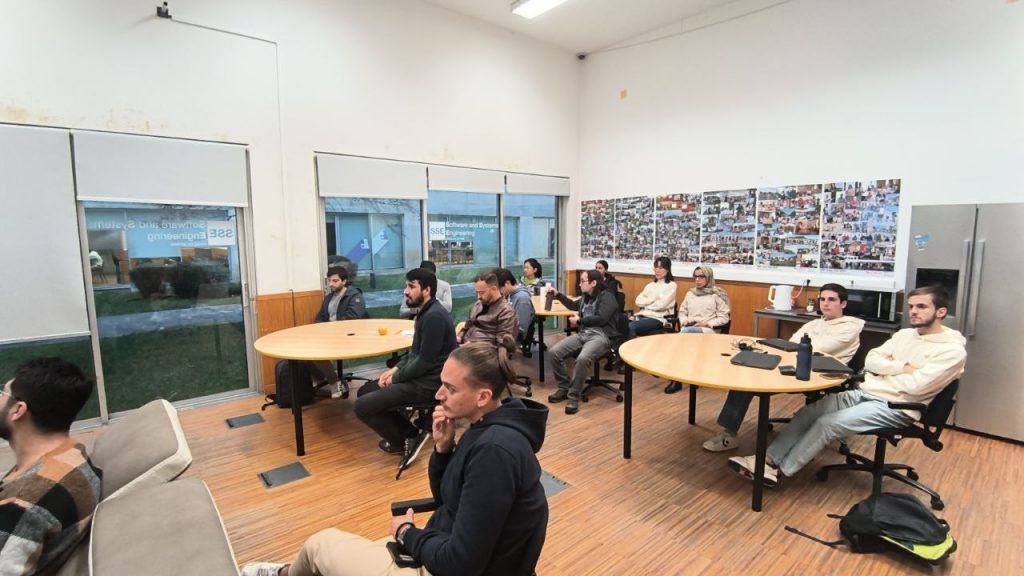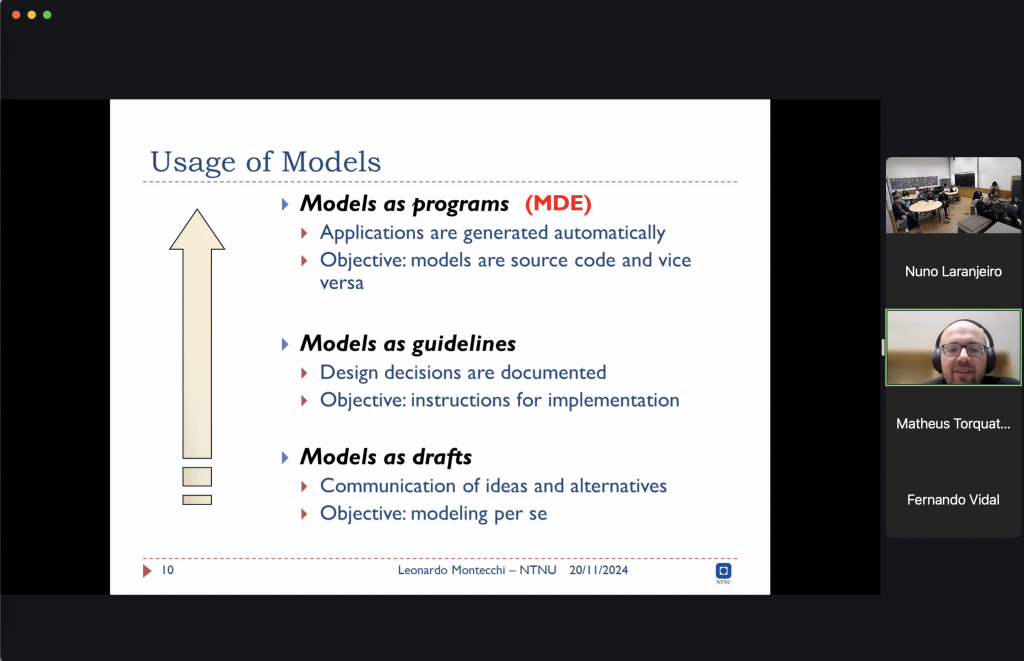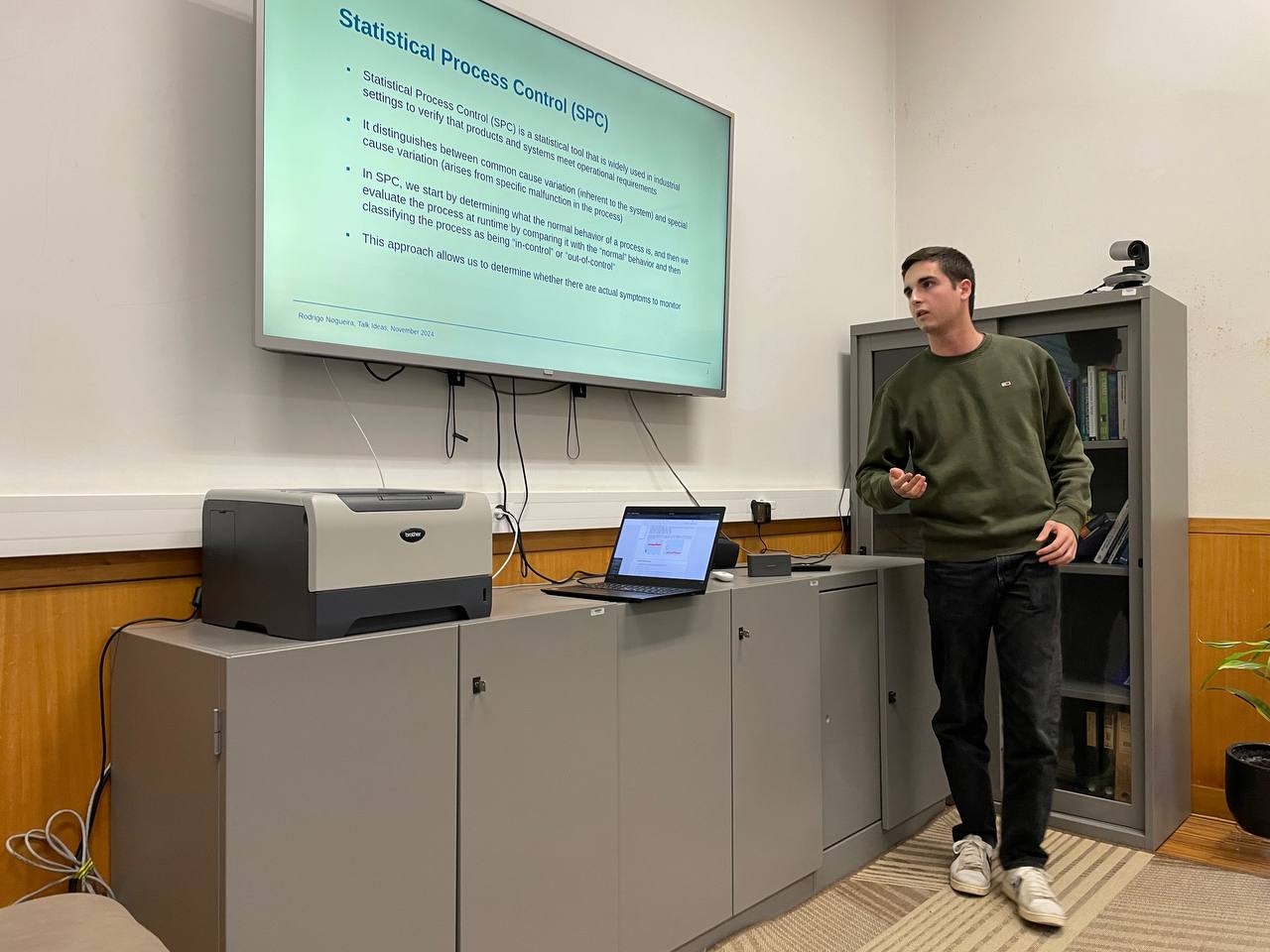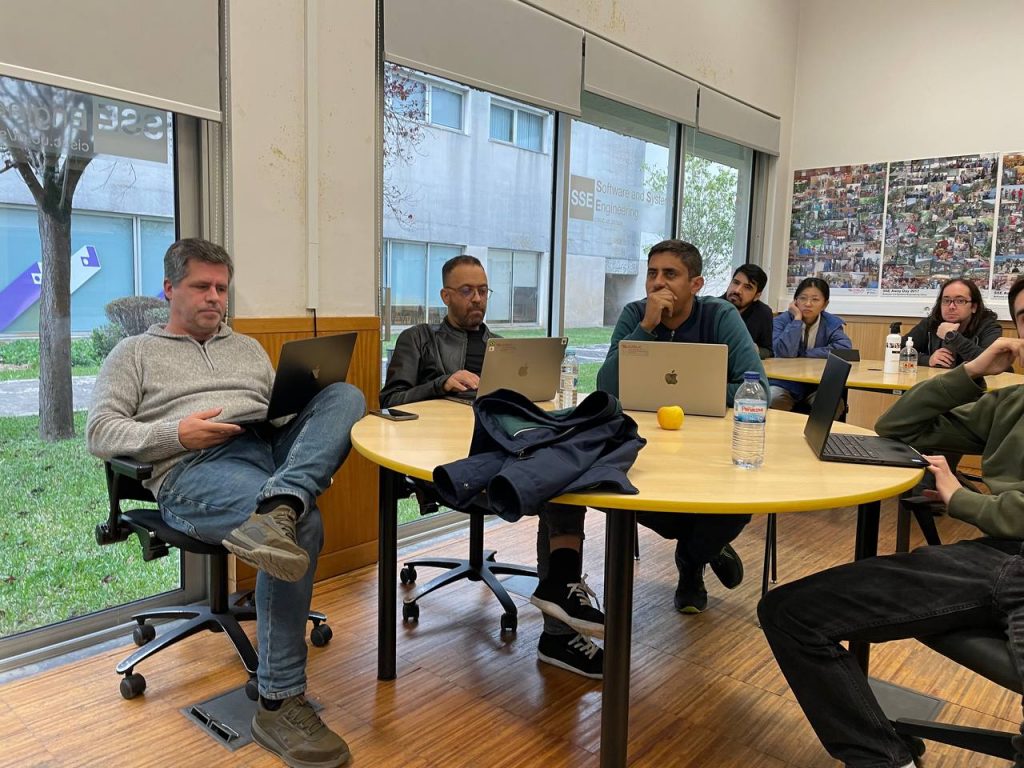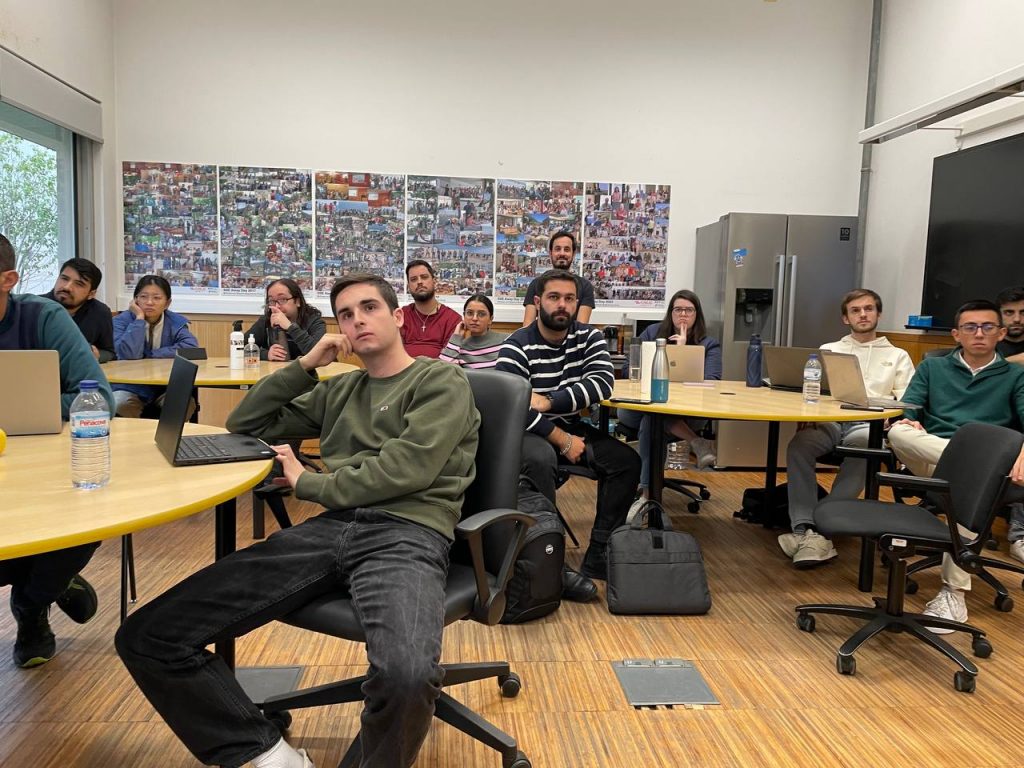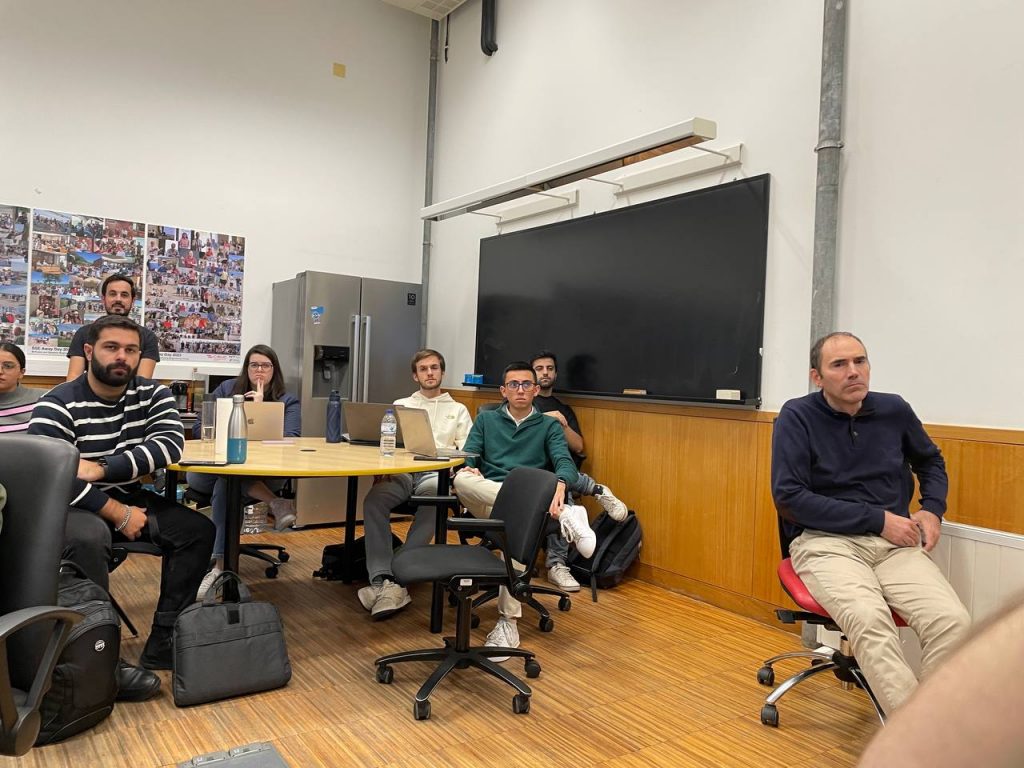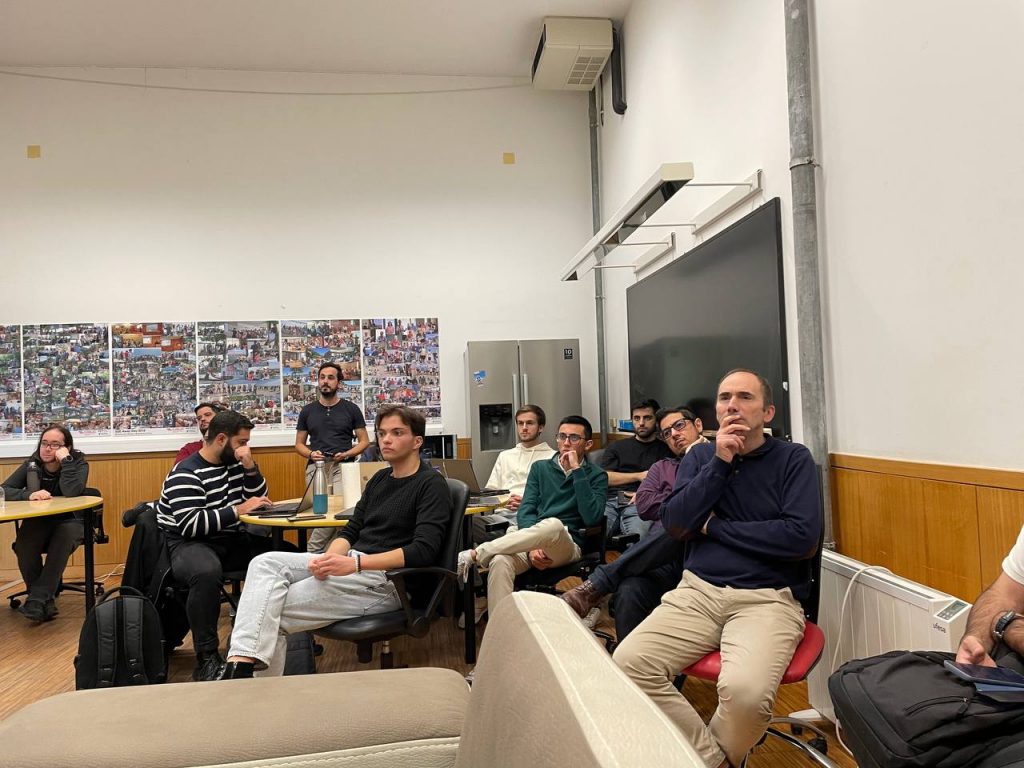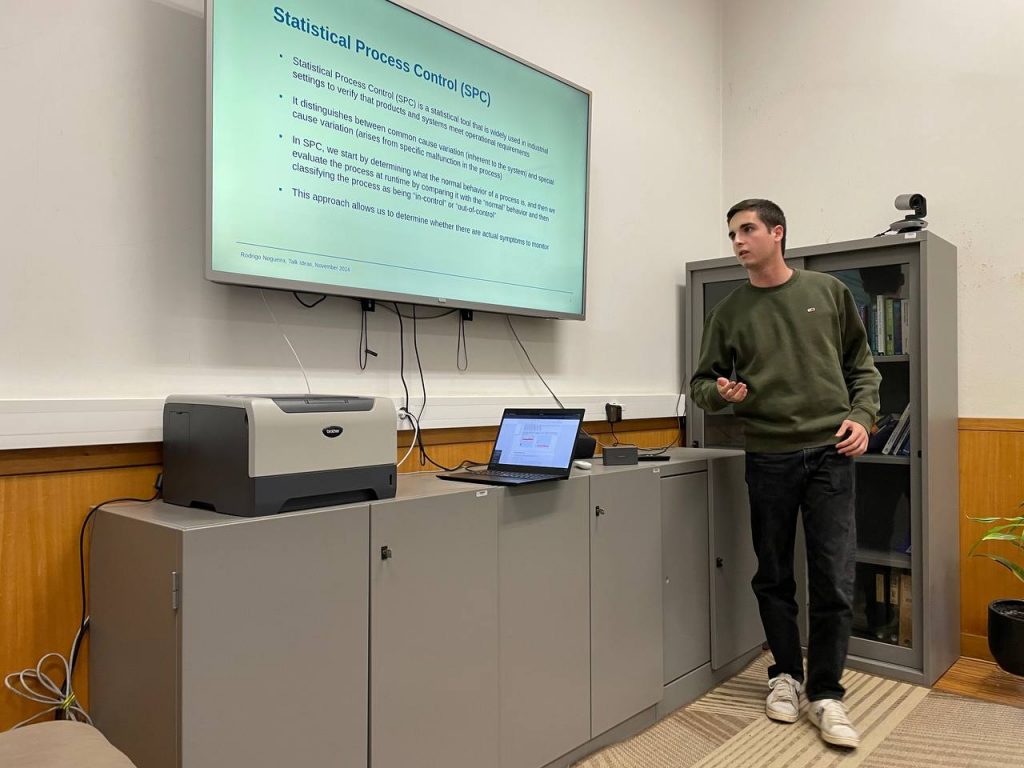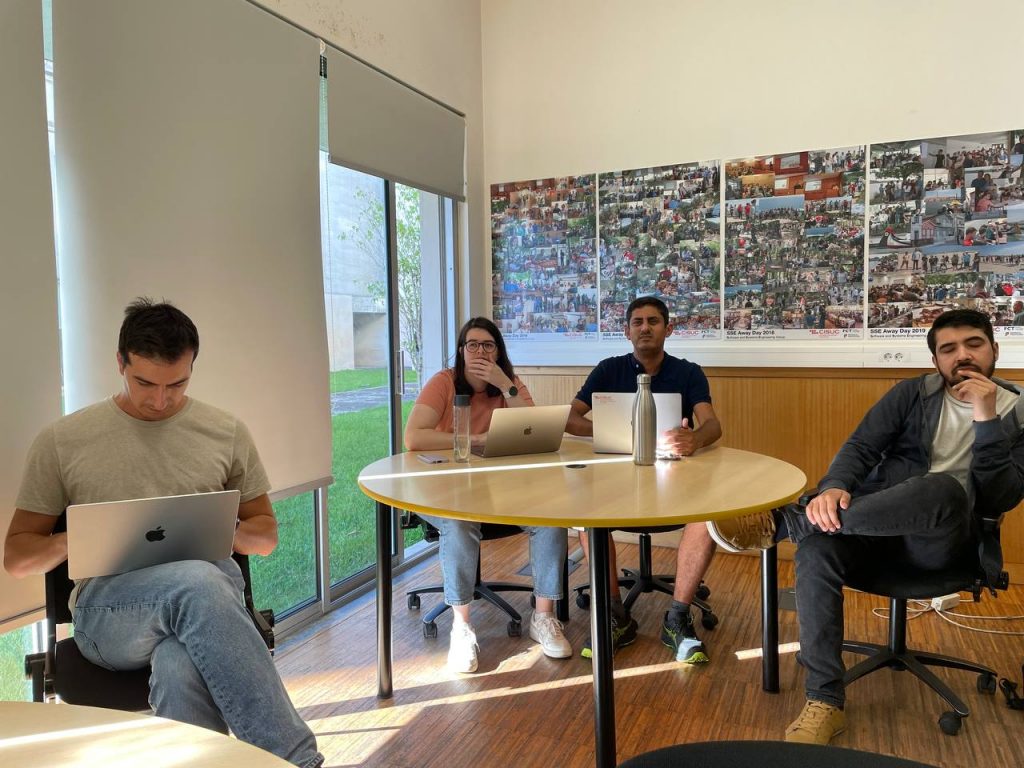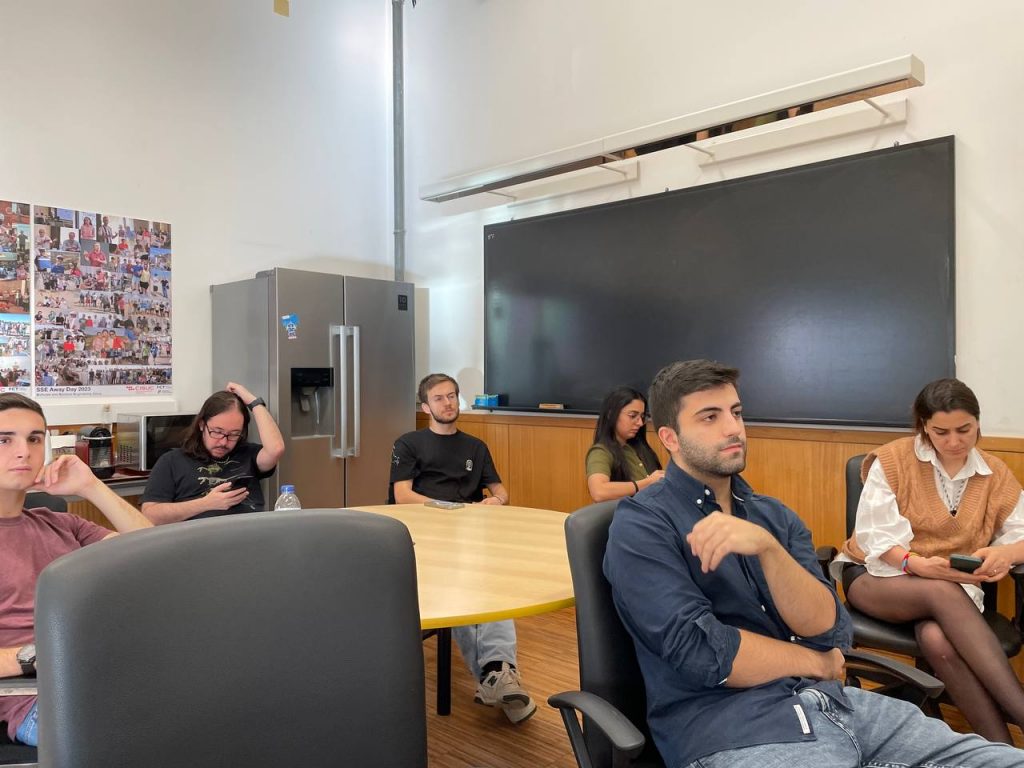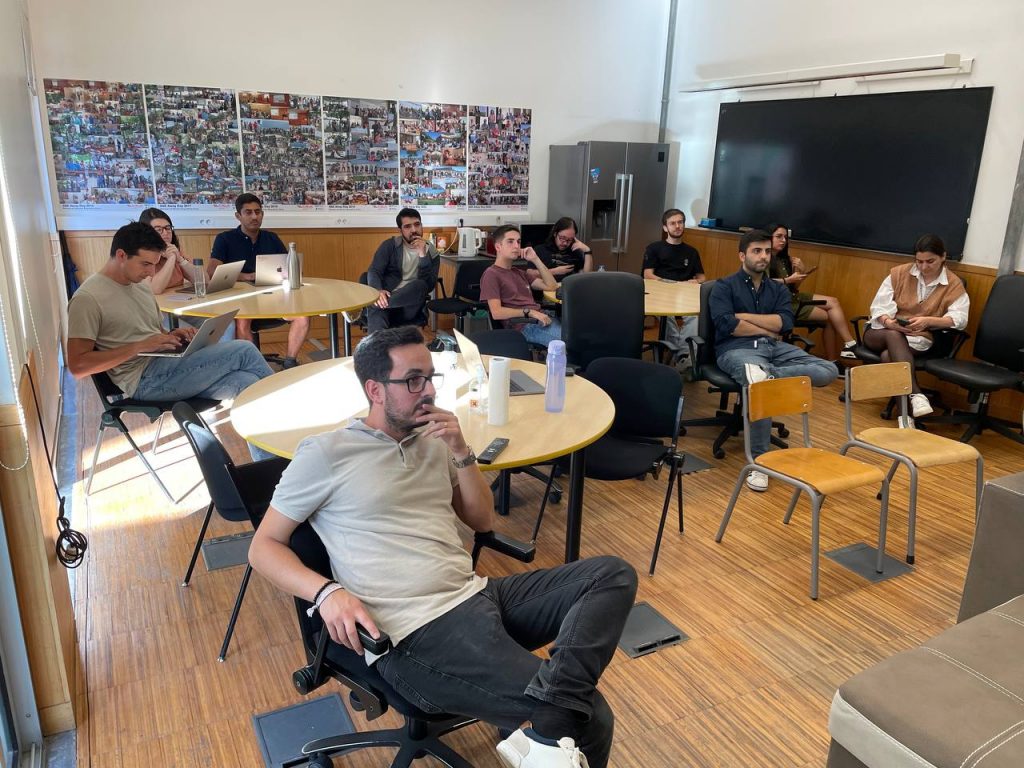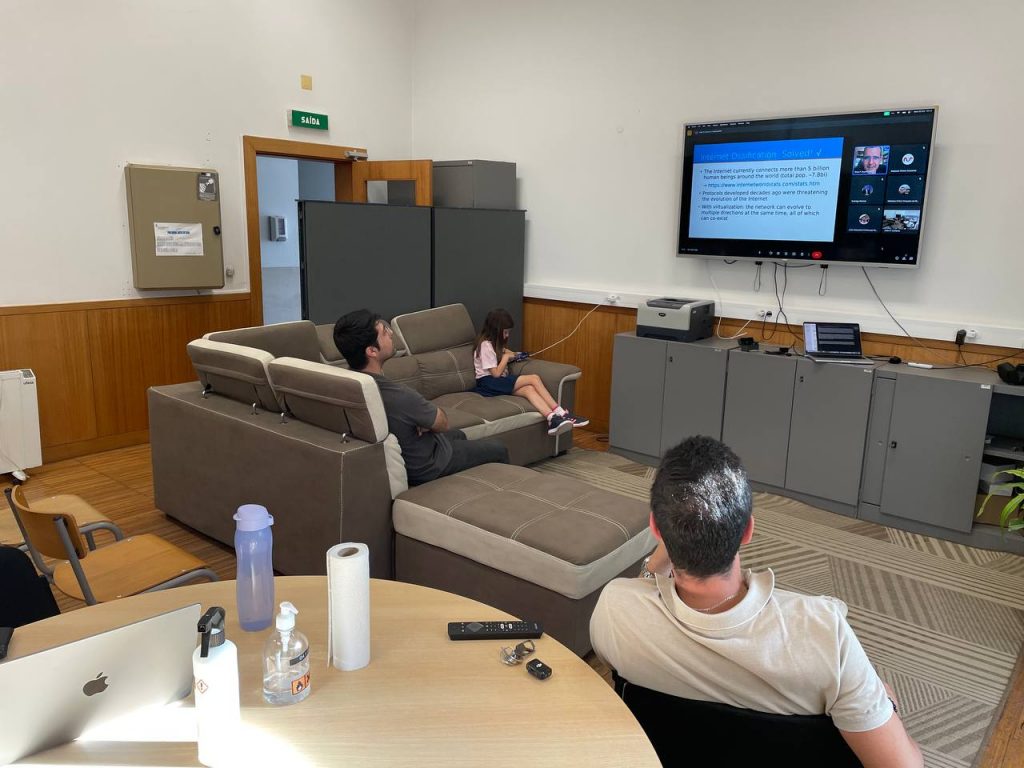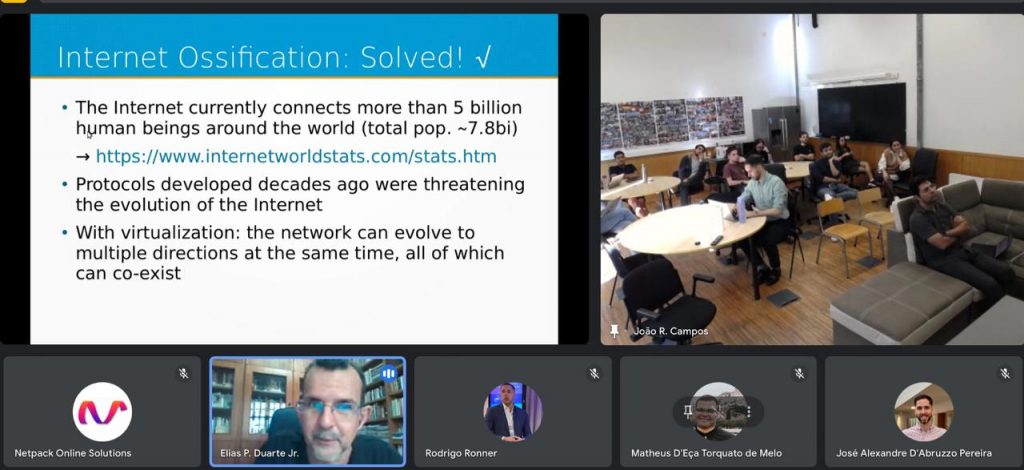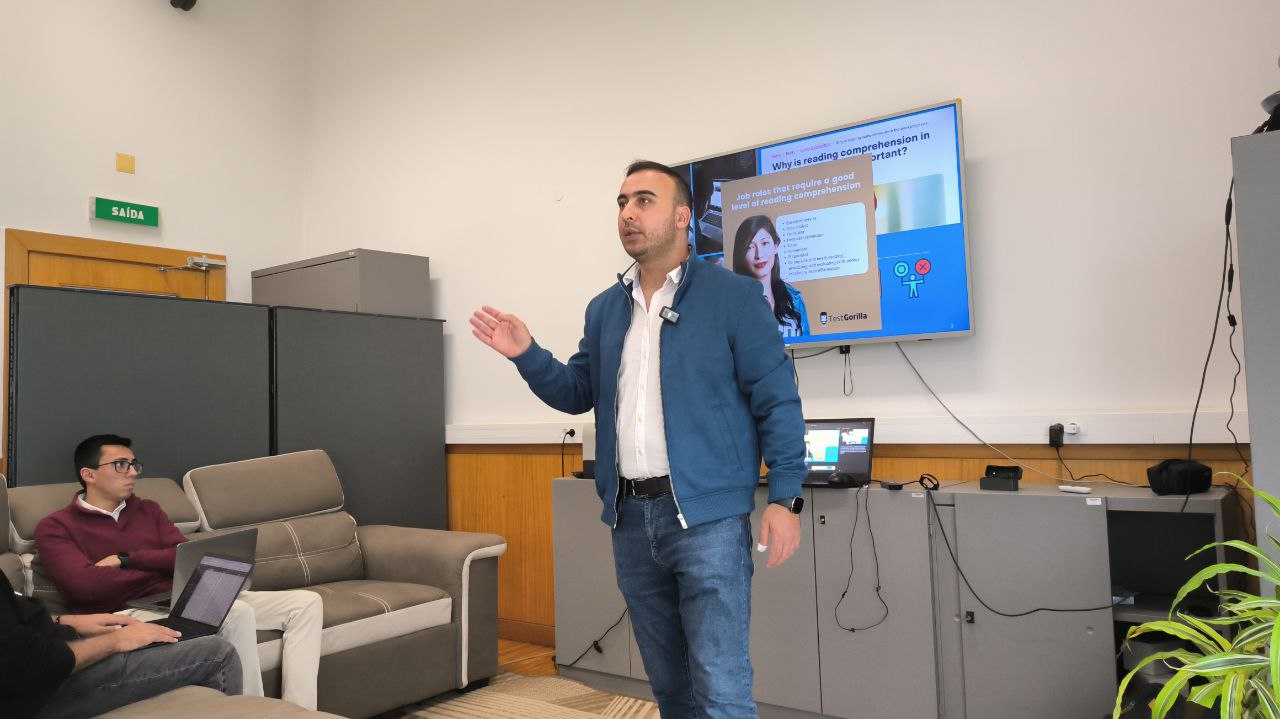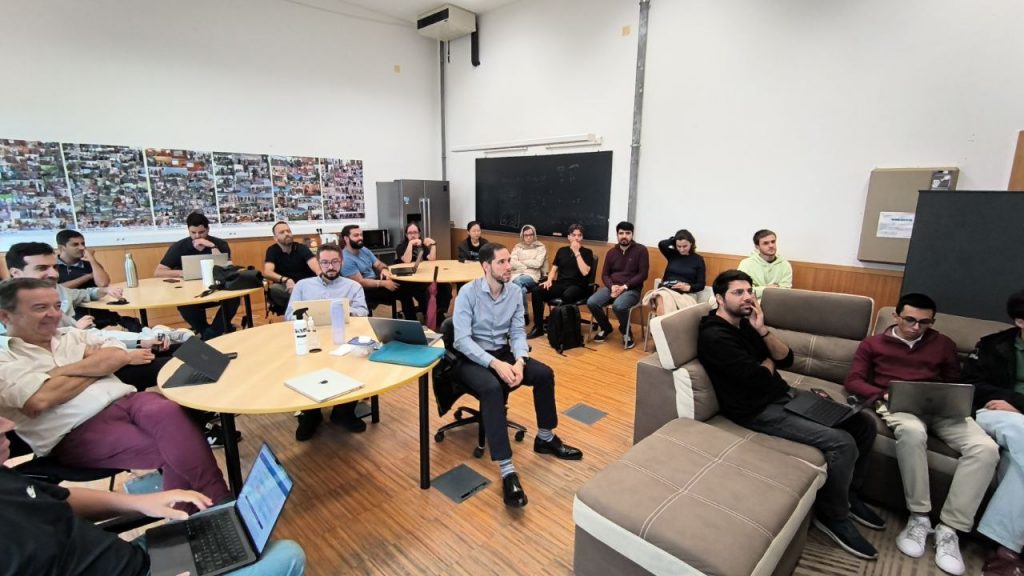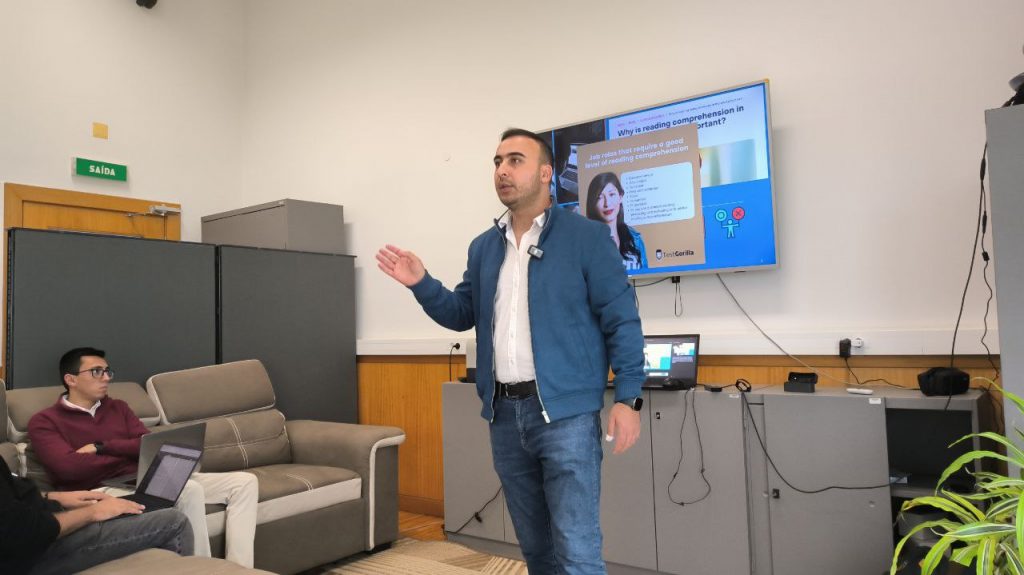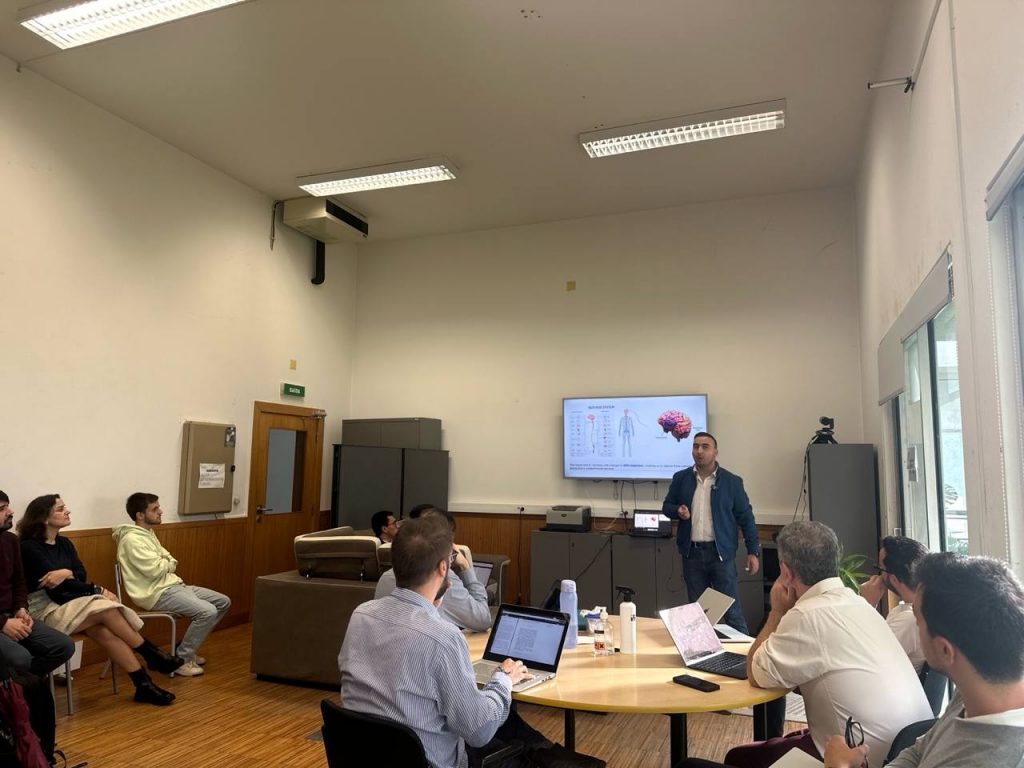Congratulations and best wishes to Rodrigo Ronner Tertulino da Silva for completing his PhD Thesis “A Privacy Aware Architecture for Electronic Health Records”.
[Defense] – José Eduardo Ferreira Flora, January 2025
CISUC congratulates and wishes all the success to José Eduardo Ferreira Flora for completing his PhD Thesis “Evaluation and Improvement of Security in Microservice-based Systems”.
[Talk Ideas] – 12th of February 2024, Sara Santos (Critical Software)
12th of February at 16h00, Sara Santos (Critical Software) will give a presentation entitled“Behaviour-Driven Development and the Role of Communication”
Location: G4.1
Abstract
Behaviour-Driven Development is a software development methodology that extends Test-Driven Development by emphasizing collaboration among developers, testers, and business stakeholders. The core principle of BDD is defining system behaviour in a human-readable format using structured natural language, enabling a shared understanding of requirements. Communication is the key factor in BDD, as it fosters clear alignment between technical implementation and business expectations. By encouraging early discussions and continuous feedback, BDD ensures that software is developed with a focus on user needs, reducing misunderstandings and costly rework. This approach strengthens cross-functional collaboration, enhances requirement clarity, and improves overall software quality.
Bio
Sara Santos started with a degree in psychology, and decided to transition into software development. Currently, I am a Solutions Architect with 7 years of experience in software engineering, and have been working in Critical Software, mainly in projects focused on the energy sector. As a Solutions Architect, I am often involved in discussions with stakeholders where BDD plays a crucial role in aligning technical solutions with business requirements.
[Talk Ideas] – 8th of January 2024, Rafael Pereira (Critical Software) and Francisco Giro (Critical Software)
8th of January at 16h00, Rafael Pereira (Critical Software) and Francisco Giro (Critical Software) will give a presentation entitled“Retrieval Augmented Generation for Private Data”
Location: G4.1
Abstract
Critical Software provides third-line support for major projects, requiring access to data from sources like Confluence, JIRA, and documentation. Locating relevant information is difficult, especially as team members change over time. To address this, we developed a virtual assistant with a Large Language Model (LLM) using Retrieval Augmented Generation (RAG). The assistant integrates diverse data sources, ensures data confidentiality, and adapts to different projects. It combines VectorRAG and GraphRAG for accurate and contextual responses. Our work also includes Open-Source Software contributions to LangChain, enhancing tools for building LLM-powered applications.
Bio
Rafael Pereira is a passionate software engineer with a Master’s degree in Computer Science from Polytechnic University of Leiria. His research focuses on emotion detection through computer vision, with several published scientific papers exploring innovative approaches such as deep learning and pose estimation for real-time emotion analysis. At Critical Software, he is actively involved in different initiatives aimed at promoting the adoption and integration of AI within the company.
Francisco Giro is a Software Engineer with a Master’s degree in Computer Science from Instituto Superior Técnico (IST), Lisbon. With nearly two years of experience at Critical Software, he specializes in Java development and collaborated on an AI initiative within the company, applying innovative approaches to research and development.
[Talk Ideas] – 18th of December 2024, Jessica Maciel and Horácio França
18th of December at 16h00, Jessica Maciel and Horácio França will give two short presentations, to promote discussion on two relevant ongoing or disruptive topics. Afterwards, there will be a social gathering where everyone can talk freely on whatever subjects they like.
Location: G4.1
Jessica Maciel – “Developing Attack Detection Models for Microservice Applications”
Bio
Jessica holds a BSc degree in Computer Science and a MSc in Informatics from the Federal University of Paraíba, Brazil. She is currently pursuing a PhD in Informatics Engineering at the University of Coimbra, Portugal, with a focus on runtime security for microservice applications.
Abstract
Microservice architectures provide scalability and flexibility, but their distributed nature and complex service structures introduce new security challenges, especially in detecting cyberattacks. In this talk, we will present our work on developing attack detection models for microservice applications, including a framework designed to generate realistic attack data and develop detection models with illustrations in the context of DDoS attacks.
Horácio França – “Using Generative Pre-trained Transformers to Identify Security Bugs among Bug Reports”
Bio
Horácio is currently a PhD student at the University of Coimbra. He has a bachelor’s degree in Computer Science and a master’s degree in Systems and Computer Engineering from the Federal University of Rio de Janeiro. His research interests include Artificial Intelligence, Cyber Security and the intersection of those subjects.
Abstract
Bug trackers are useful tools for developers to identify issues in their software, however, depending on how many reports are being submitted it may become hard to prioritize what to tackle first. Security issues being reported in this manner need to be identified rapidly for two reasons: Firstly, they need to be addressed in the software as quickly as possible, and secondly because a public issue report about a security bug could inform malicious actors of the existence of an exploitable vulnerability. With the increased use of GPTs across industry and academia, this problem seemed like a good application of this technology. In this presentation, we expound on the results obtained from testing 4 different GPT models on 7 different security bug report datasets.
[Talk Ideas] – 27th of November 2024, Nuno Lourenço (bAI)
27th of November at 16h00, Nuno Lourenço (bAI) will give a presentation entitled“Smart, Sustainable, and Evolved AI”
Location: G4.1Online: https://meet.google.com/rqf-xofk-dck
Abstract
In this talk, we will present and discuss how nature-inspired approaches, namely evolutionary algorithms (EAs) can address sustainability and robustness challenges in AI, namely in Deep Artificial Neural Networks (ANNs).
Bio
Nuno Lourenço is an Associate Professor at the Department of Informatics Engineering of the University of Coimbra, where he obtained his PhD in Information Science and Technology in 2016. He is the current coordinator of the bio-Inspired Artificial Intelligence (bAI) group and is a member of the Centre for Informatics and Systems of the University of Coimbra (CISUC) since 2009. His main research interests are in the areas of Bio-Inspired Algorithms, Optimisation and Machine Learning. He is the co-creator of Structured Grammatical Evolution, Probabilistic Grammatical Evolution, and DENSER, a novel approach to automatically design Deep Artificial Neural Networks using Evolutionary Computation. He served as chair in the main conferences of the Evolutionary Computation field, namely EuroGP 2020 and 2021 as program chair, and PPSN 2018 and EuroGP 2019 as publication chair. He is a member of the Programme Committee of GECCO, PPSN, and EuroGP; a member of the Steering Committee of EuroGP; and an executive board member of SPECIES.
[Talk Ideas] – 20th of November 2024, Leonardo Montecchi (NTNU)
20th of November at 16h15, Leonardo Montecchi (NTNU) will give a presentation entitled“Model-Driven Engineering for System Verification: Overview and Portugal-Norway Collaboration Opportunities”
This sessions happens within the context of “Science and Technology Week” of Ciência Viva: https://www.cienciaviva.pt/semanact/2024/eventos.php?accao=showactivities&id_activity=7041
Location: G4.1Online: https://videoconf-colibri.zoom.us/j/96201340056?pwd=0GRZ5FoE2dyiAZo1G6sm20N30ZZCq2.1
Abstract
Model-Driven Engineering is a software development technique that advocates the use of models (e.g., UML models) as primary artifacts in the development process. Following this phylosophy, developers “program” using models, and source code is automatically generated from such abstract representations of the intended product. This approach is based on ad-hoc languages that are able to describe concepts of the involved domain, that is, domain-specific languages (DSLs). While MDE originated for software development, it has expanded beyond its initial software-centered focus, and it is applied to formalize and automate worflows in different domains. This talk gives an overview of the application of MDE concepts for verification of systems, and sketches possible collaboration opportunities between the University of Coimbra and NTNU.
Bio
Leonardo Montecchi is Associate Professor with the Norwegian University of Science and Technology (NTNU) in Trondheim, Norway. From 2017 to 2021, he was Assistant Professor with the University of Campinas (Unicamp), Brazil. He received his PhD from the University of Firenze, Italy, in 2014, with the Resilient Computing Lab (RCL). His expertise revolves around the modeling of complex systems, including formal models, probabilistic models, and model-driven engineering. His research interests include modeling as a support to the verification and validation of safety-critical and mission-critical systems. He is regularly serving as reviewer for journals and conferences in the areas of dependability and software engineering. Leonardo has been Vice-Coordinator of the Brazilian Committee on Fault Tolerance, and Program Co-Chair of the 9th Latin-American Symposium on Dependable Computing (LADC 2019). He is Conference Chair for the 2025 edition ACM SIGSOFT FSE (Foundations of Sofware Engineering), which will be held in Trondheim on 23-27 June 2025.
[Talk Ideas] – 13th of November 16h00 2024, Tiago Rolo and Rodrigo Nogueira
13th of November at 16h00, Tiago Rolo and Rodrigo Nogueira will give two short presentations, to promote discussion on two relevant ongoing or disruptive topics. Afterwards, there will be a social gathering where everyone can talk freely on whatever subjects they like.
Location: G4.1
Tiago Rolo – “Efficient Write Operations in Event Sourcing with Replication”
Bio
Tiago Rolo obtained his Bachelor’s degree in Informatics at the University of the Azores, followed by a Master’s in Informatics Engineering from the University of Coimbra. Now enrolled in the PhD in Informatics Engineering, his research centers on data replication within the context of Event Sourcing.
Abstract
Event Sourcing (ES) is an architectural pattern in which applications maintain an audit log of all state changes, stored as an immutable sequence of events. Although replicating the event log can improve dependability, existing ES technologies do not exploit replication for efficient write operations.The challenge lies in enabling write operations on replicas without disrupting the sequential ordering of the log or incurring significant communication overhead between geographically distributed replicas. We addressed these concerns by designing a replication method that partitions application resources across two replicas, ensuring that most operations require only local ordering, reserving inter-replica communication for scenarios where resources are limited.We implemented our approach using the Axon Framework and evaluated its performance against MongoDB Replica Sets, where writes go through the primary replica, achieving a significant improvement in the speed of local write operations.
Rodrigo Nogueira – “Statistical Process Control for Supporting OS-level Failure Prediction”
Bio
Currently pursuing a Master’s degree in Data Engineering and Science after completing a Bachelor’s degree in the same field from 2020 to 2023 (both in the University of Coimbra). Besides that, I’ve been involved in research at CISUC – SSE since I was still in my Bachelor’s, focusing on the intersection of artificial intelligence with dependability and software engineering.
Abstract
In today’s society, software is relied upon to perform many critical tasks, where failures can result in substantial losses or even the loss of lives. Online Failure Prediction (OFP) aims to predict upcoming failures, enabling preemptive measures to be taken and mitigating potential hazards, by continuously analyzing the system’s current state, based on the assumption that symptoms, such as system misbehavior, precede failures. However, accurately characterizing a complex system’s (mis)behavior remains a challenge. A key question arises: How can we ensure that failure predictors are capturing genuine symptoms rather than simply identifying correlations in the data? This study explores the use of Statistical Process Control (SPC) as a potential tool for characterizing the stability and instability of the Linux and Windows Operating Systems. Through this approach, we aim to determine whether SPC methods can reliably indicate underlying issues that may signal potential failure. We analyze and compare various SPC techniques to evaluate their effectiveness in detecting software failures, focusing particularly on their robustness in identifying true signs of instability while minimizing false positives. Results indicate that these techniques are generally effective, successfully detecting the majority of failures with a minimal occurrence of false positives.
[Talk Ideas] – 23rd of October 2024, Elias P. Duarte Jr (UFPR)
23rd of October at 16h00, Elias P. Duarte Jr. (UFPR) will give a presentation entitled“NFV-COIN: Leveraging In-Network Computing with Network Function Virtualization”
Location: G4.1Online: https://meet.google.com/rqf-xofk-dck
Abstract
In this talk we will examine a phenomenon that can resignify communication networks as we know them. Instead of acting just as a data transport medium, multiple technologies have made it possible to leverage networks to run and provide user-level services. This paradigm has been alternately called Computing In the Network (COIN) and In-Network Computing (INC). INC has been mostly used in the context of programmable hardware, which provides support for the implementation of services on the data-layer level. Network Functions Virtualization (NFV) is another alternative technology to deploy novel types of services within the network. NFV allows the implementation in software of middleboxes traditionally available as specialized hardware. Network services can be implemented as SFCs (Service Function Chains) based on virtualization technologies that run on commodity hardware. Although most virtualized functions have classic middlebox functionalities (e.g. firewalls or intrusion detectors) arbitrary COIN services can be implemented using NFV technologies, which we call NFV-COIN. An NFV-COIN architecture has been proposed and published as an IETF Draft. We present case studies of NFV-COIN services for distributed abstractions that are notoriously relevant and hard to implement and maintain, including consensus, reliable and ordered broadcast, and failure detectors.
Bio
Elias P. Duarte Jr. is a Full Professor at Federal University of Parana, Curitiba, Brazil, where he is the head of the Computer Networks, Distributed Systems & Security Lab (LaRSiS). He has been twice (2005 and 2009) Visiting Associate Professor at Tohoku University (Japan) and Visiting Researcher at the University of California at Irvine (1997). His research interests include Computer Networks and Distributed Systems, their Dependability, Management, and Algorithms. He has published over 300 peer-reviewer papers and has supervised more than 130 students both on the graduate and undergraduate levels. Prof. Duarte has been Associate Editor of the Computing (Springer) journal and IEEE Transactions on Dependable and Secure Computing, and has served as chair of 30 conferences and workshops in his fields of interest, including chairing TCPs of SRDS’18, ICDCS’21, and GLOBECOM’24. He received a Ph.D. degree in Computer Science from Tokyo Institute of Technology, Japan, 1997, M.Sc. degree in Telecommunications from the Polytechnical University of Madrid, Spain, 1991, and both BSc and MSc degrees in Computer Science from Federal University of Minas Gerais, Brazil, 1987 and 1991. He chaired the Brazilian National Laboratory on Computer Networks (2012-2016). He is a member of the IFIP WG 10.4 on Dependable Computing & Fault Tolerance, a Member of the Brazilian Computing Society (SBC) and a Senior Member of the IEEE.
[Talk Ideas] – 9th of October 2024, Haytham Hijazi
9th of October at 16h00, Haytham Hijazi will give a presentation entitled“Where Did I Get Lost? Wearables and Explainable AI to Understand Your Brain’s Comprehension Process”
Location: G4.1
Abstract
As our digital world becomes increasingly complex, especially with the vast amounts of content and intricate code in the software industry, keeping up with content comprehension can be challenging. Often, we find ourselves getting lost while engaging with complex information (even with the assistance of AI tools like ChatGPT). This talk spots the light on an innovative approach to tackle this issue by integrating physiological data from wearables (such as smartwatches) with eye-tracking technology to estimate cognitive effort during the comprehension process.We combine these insights with explainable machine learning models to predict when, where, and why comprehension difficulties arise. To enhance the explainability, our approach includes a risk analysis framework that assigns a risk score to different sections of content, explaining which parts affect overall understanding the most. This fusion of AI, wearables, and explainability may provide new perspectives on improving content engagement and understanding in various contexts.
Bio
Haytham Hijazi recently obtained his Ph.D. in Informatics Engineering (Intelligent Systems) with highest distinction from the University of Coimbra. His research focuses on predicting content comprehension and engagement levels in individuals using wearable biometric data and AI. His work has been published in top peer-reviewed journals and presented at international conferences.He earned his MSc. in Informatics Engineering from the University of Stuttgart, Germany, with honors, funded by a DAAD scholarship.Hijazi’s expertise spans machine learning, wearable data analysis, and AI in software engineering.
